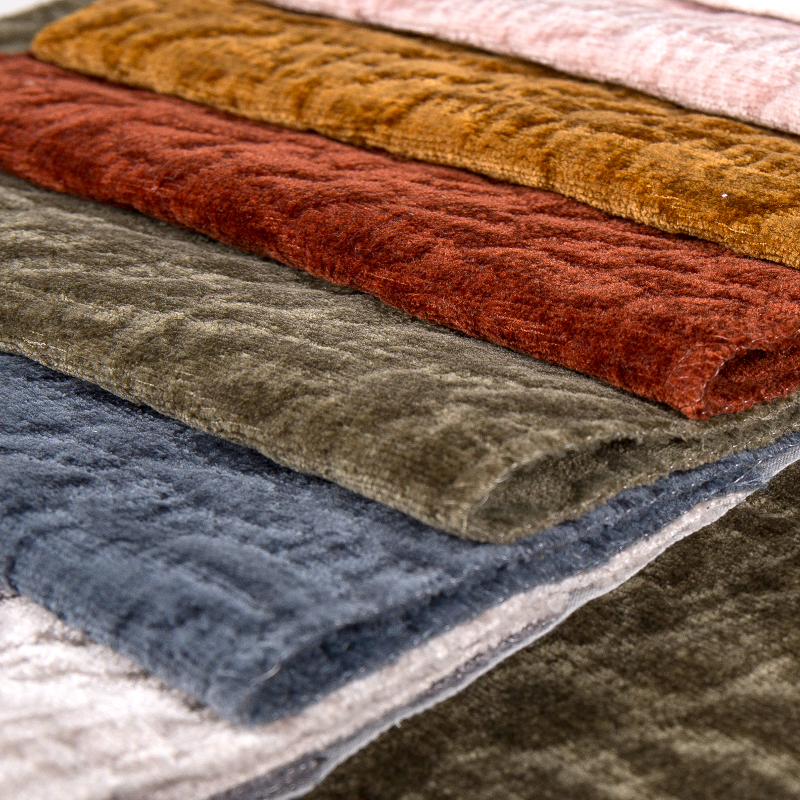Jan 20, 2025
Environmentally friendly materials may be used in the production process of polyester knitted sofa fabrics. The following is a detailed analysis of the production process of polyester knitted sofa fabrics:
1. Raw materials of polyester knitted sofa fabrics
The main raw material of polyester knitted sofa fabrics is polyester fiber, also known as polyester. The raw materials of polyester fiber mainly include chemical raw materials such as terephthalic acid (DMT), polyether glycol (PTMG), and cyclohexane dicarboxylate (HMD). These raw materials undergo a series of chemical reactions, such as melting and spinning, to make polyester filaments or staple fibers, and then further processed into polyester knitted fabrics.
2. The production process of polyester knitted sofa fabrics
Spinning: The polyester raw materials are processed into fibers through melting, filtering, extrusion and other processing processes, and then stretched, twisted, and wound by a spinning machine to obtain polyester fibers.
Knitting: The polyester fibers are woven through a knitting machine to form a knitted fabric with a specific texture and elasticity.
Finishing: A series of treatments are performed on the knitted fabric, such as dyeing, shaping, softening, and wrinkle prevention, to improve its wearing performance and appearance quality. Various chemical additives may be used in these treatments, such as dyes, setting agents, softeners, etc.

3. Use of environmentally friendly materials
Environmentally friendly polyester fiber: With the improvement of environmental awareness, more and more manufacturers have begun to use environmentally friendly polyester fibers as raw materials. These environmentally friendly polyester fibers are usually made from recycled polyester bottle flakes, polyester waste and other raw materials, with lower carbon emissions and environmental pollution.
Environmentally friendly additives: In the post-finishing process, some manufacturers will also choose to use environmentally friendly additives, such as environmentally friendly dyes, formaldehyde-free setting agents, etc., to reduce pollution to the environment and harm to the human body.
4. Environmental certification and standards
In order to prove the environmental performance of the product, some manufacturers will also apply for relevant environmental certifications, such as OEKO-TEX Standard 100, GOTS (Global Organic Textile Standard), etc. These certifications require that products must comply with strict environmental regulations and standards during the production process to ensure that the environmental performance of the product meets the relevant requirements.